Understanding Bone Marrow Transplant
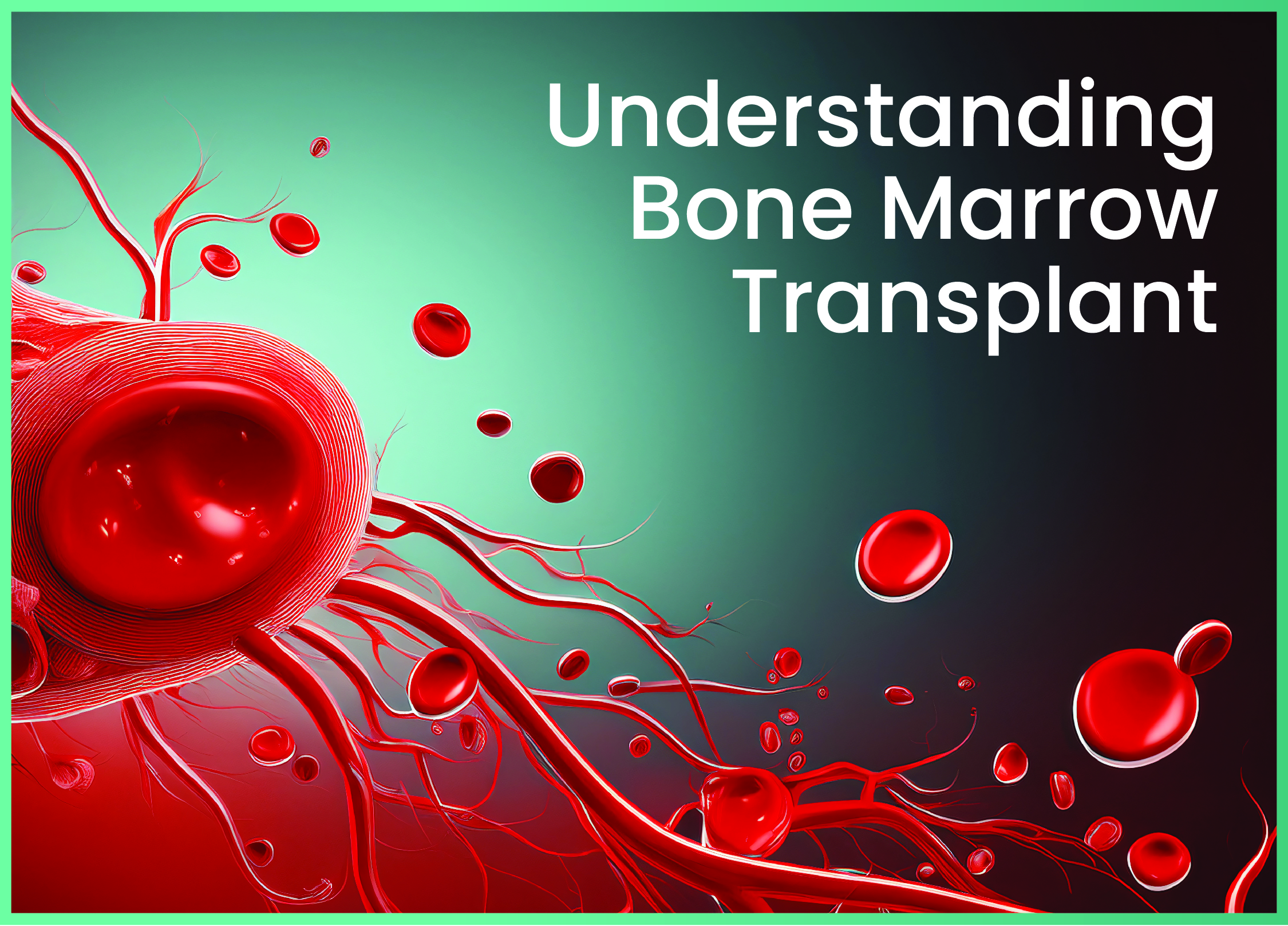
What is Bone Marrow Transplant?
A Bone Marrow Transplant (BMT) is a medical procedure that replaces damaged or destroyed bone marrow with healthy stem cells. The bone marrow is the soft, spongy tissue inside our bones that produces blood-forming cells - red blood cells, white blood cells, and platelets. When this vital function is disrupted due to disease, a bone marrow transplant can offer a new lease on life.
Why Is Bone Marrow Transplant Needed?
Certain conditions can damage the bone marrow so severely that it stops producing healthy blood cells. Some of these include:
- Leukemia (a type of blood cancer)
- Lymphoma (a type of blood cancer that affects the immune system)
- Multiple Myeloma (a cancer that affects plasma cells - a type of white blood cell that produces antibodies)
- Aplastic Anemia (a condition that happens when your bone marrow stops making enough new blood cells)
- Sickle Cell Disease (a group of inherited disorders that affect haemoglobin, the major protein that carries oxygen in red blood cells)
- Thalassemia (a blood disorder passed down through families in which the body makes an abnormal form or inadequate amount of haemoglobin)
- Severe Immunodeficiency Disorders
When these diseases either destroy the bone marrow or require aggressive treatments (like chemotherapy) that affect its function, a bone marrow transplant becomes essential.
Signs and Symptoms That May Lead to a Bone Marrow Transplant
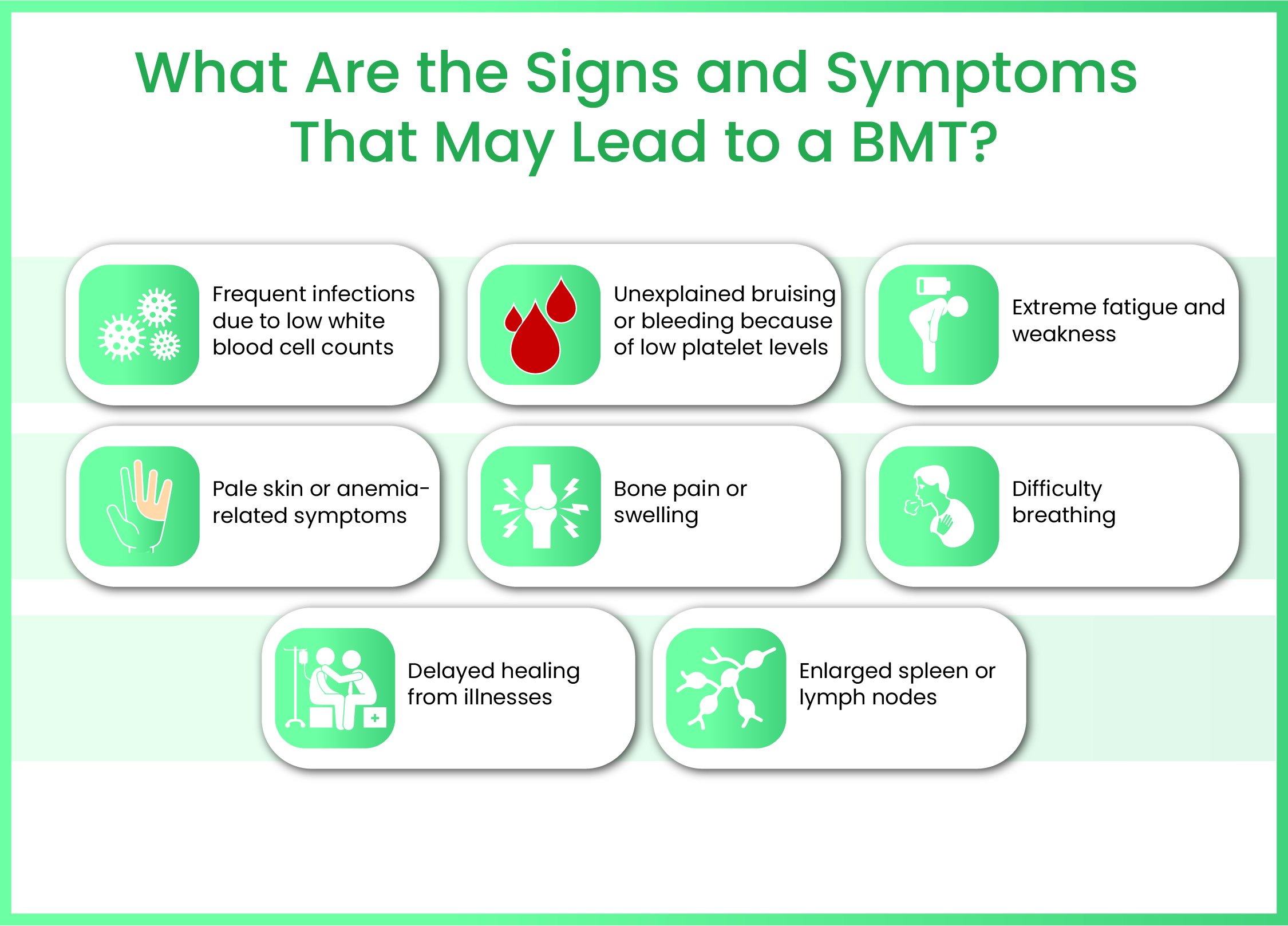
Most people do not immediately realize they might need a bone marrow transplant. The signs can vary depending on the underlying condition, but some common red flags include:
- Frequent infections due to low white blood cell counts
- Unexplained bruising or bleeding because of low platelet levels
- Extreme fatigue and weakness
- Pale skin or anemia-related symptoms
- Bone pain or swelling
- Difficulty breathing
- Delayed healing from illnesses
- Enlarged spleen or lymph nodes
If you're experiencing such symptoms, it's important to consult an expert without delay.
Dr. Reetu Jain, a trusted Hematologist in Mumbai, can help you undergo further evaluation and provide expert guidance.
Risks and Complications of Bone Marrow Transplant
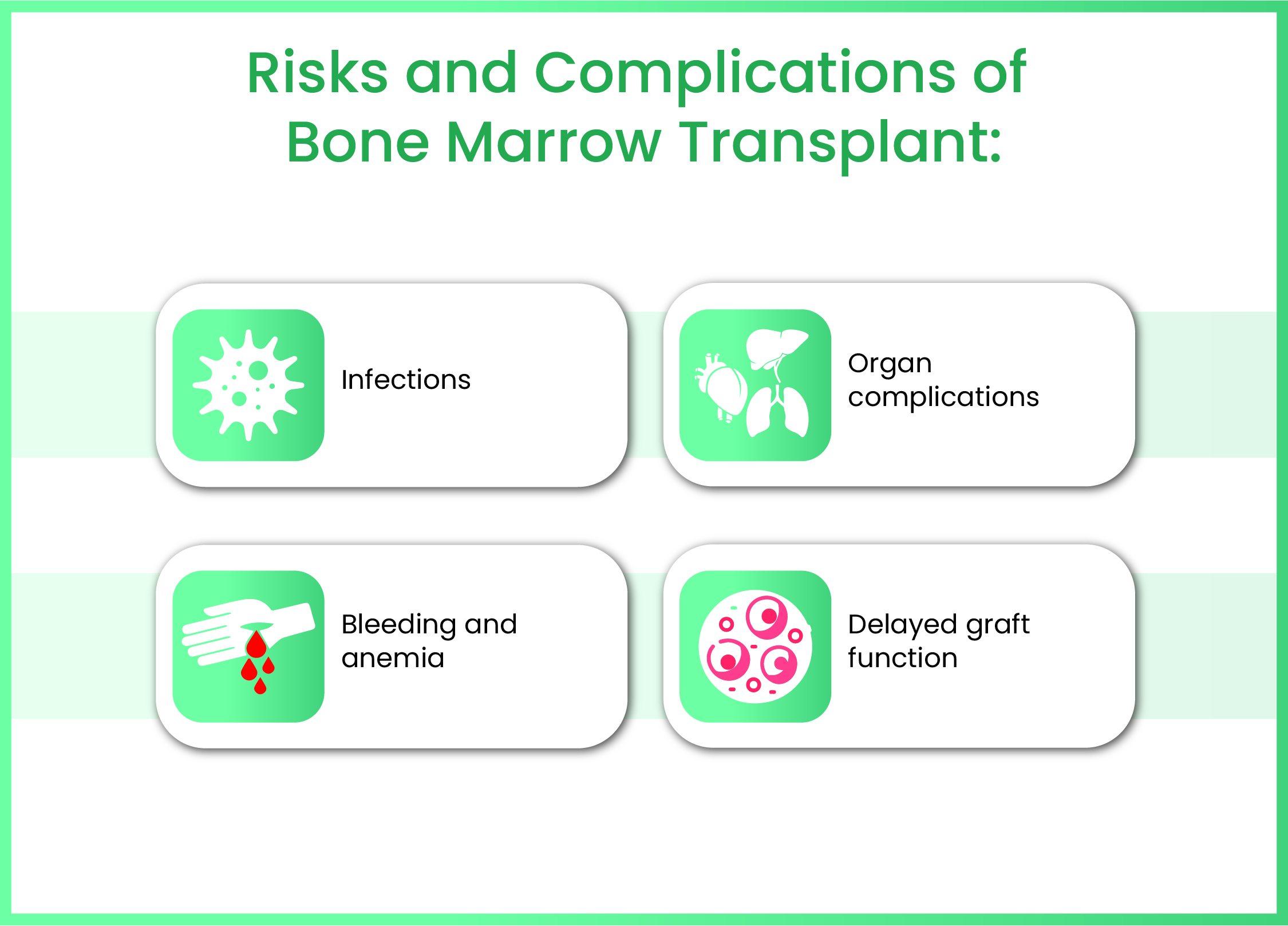
While BMT can be life-saving, it also comes with potential risks. The most common ones include:
- Graft-versus-host disease (GVHD): Especially in allogeneic transplants, where donor cells may attack the patient’s tissues.
- Infections: Due to low immunity during the recovery period.
- Organ complications: Can affect the liver, lungs, or heart.
- Bleeding and anemia
- Delayed graft function: When the new stem cells take time to start working.
Understanding these risks helps in making informed decisions. With expert care and monitoring, many complications can be effectively managed.
How is Bone Marrow Transplant Diagnosed?
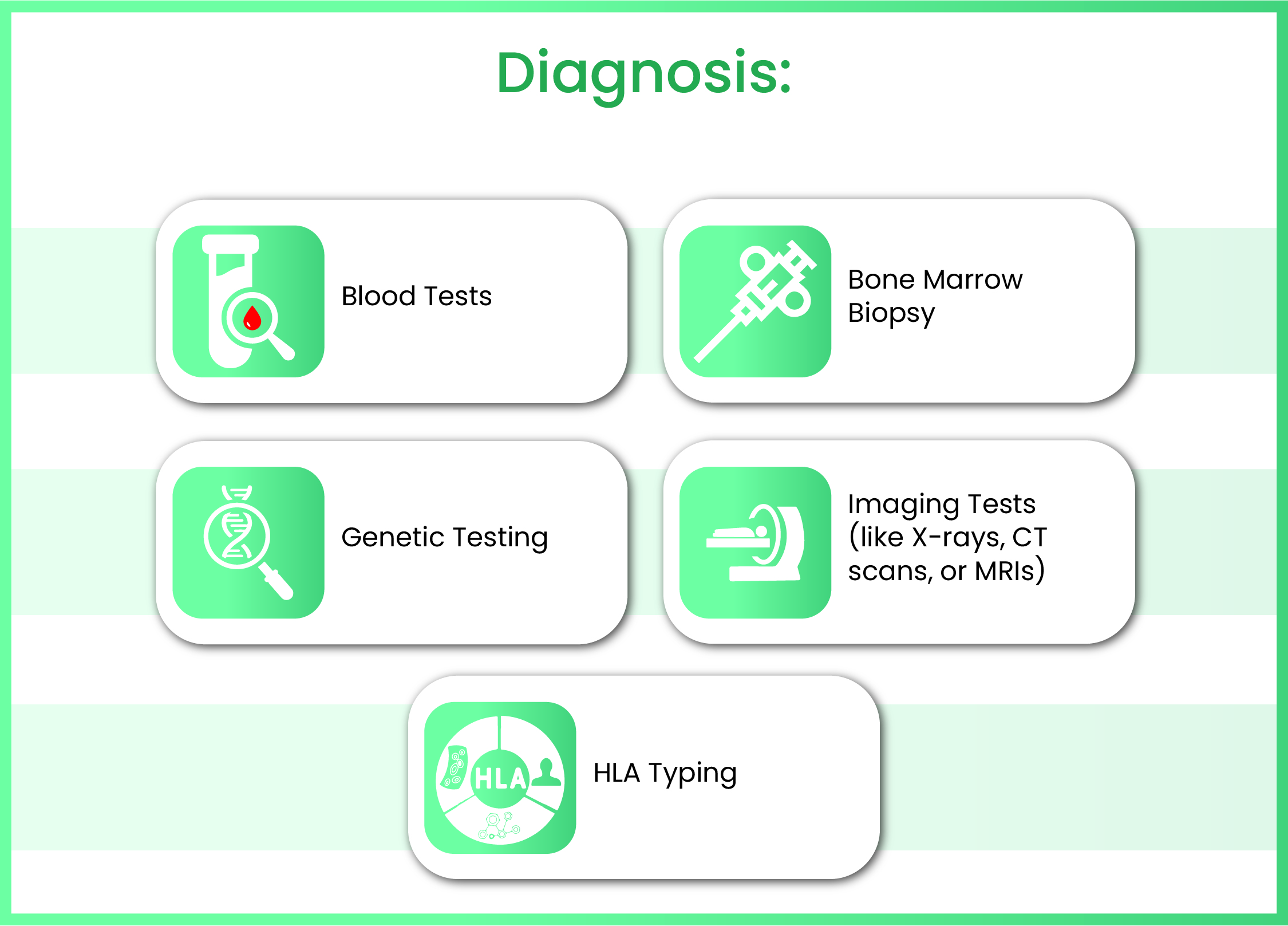
Before considering a bone marrow transplant, a detailed assessment is done to evaluate the patient’s condition and find the most suitable treatment plan.
- Blood Tests: Used to assess blood cell counts and overall blood function to determine marrow health.
- Bone Marrow Biopsy: A sample of bone marrow is taken to examine the structure and detect abnormalities.
- Genetic Testing: Tests are done to identify genetic mutations that may guide treatment choices and donor selection.
- Imaging Tests: Includes X-rays, CT scans, or MRIs to assess organ health and check for disease spread.
- HLA Typing: Human Leukocyte Antigen (HLA) typing is critical for finding a suitable donor match for transplant success.
Detailed diagnosis and selecting the right type of transplant are crucial steps in achieving the best outcomes. Expert guidance from specialists like Dr. Reetu Jain can make this journey smoother and more successful.
Types of Bone Marrow Transplant
- Autologous Transplant: This involves using the patient’s own healthy stem cells. These are collected before treatment and reintroduced after high-dose chemotherapy or radiation therapy. It is commonly used in conditions like lymphoma or multiple myeloma.
- Allogeneic Transplant: In this method, the stem cells come from a genetically matched donor — often a sibling or a closely matched unrelated donor. It’s mostly used for conditions like leukemia and certain anemias.
- Haploidentical Transplant: When a full match is not available, a half-matched family donor (like a parent or child) can be used. This has made transplants more accessible, especially in India, where full matches are harder to find.
Bone marrow transplant is a life-saving procedure, and understanding its types helps patients and families make informed decisions. Expert guidance can help select the most suitable transplant method.
What Happens During a Bone Marrow Transplant?
Once the donor is identified and conditioning therapy is completed, the patient receives the healthy stem cells via infusion – similar to a blood transfusion.
Over time, these stem cells migrate to the bone marrow and begin to produce healthy blood cells.
Life After Bone Marrow Transplant - What to Expect?
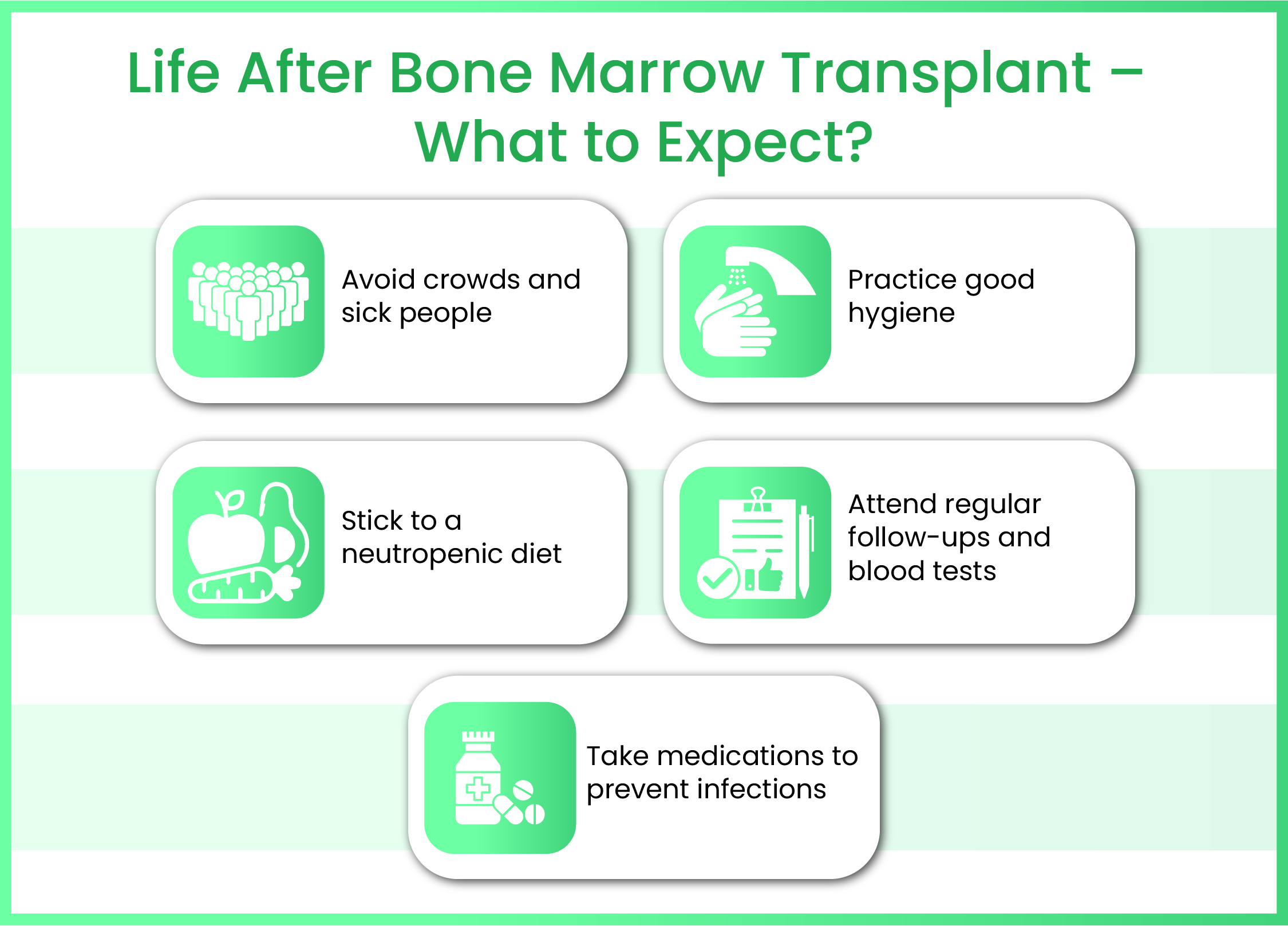
Recovery from a bone marrow transplant takes time. The immune system remains weak for months, and patients need to follow strict precautions:
- Avoid crowds and sick people
- Practice good hygiene
- Stick to a neutropenic diet (free from raw or unpasteurized foods)
- Attend regular follow-ups and blood tests
- Take medications to prevent infections
Many patients go on to live healthy, normal lives after transplant. The key is patience, a positive mindset, and the support of a good medical team — like the one led by Dr. Reetu Jain, a Bone Marrow Transplant Expert in Mumbai.
Lifestyle Changes to Support Recovery and Long-Term Health
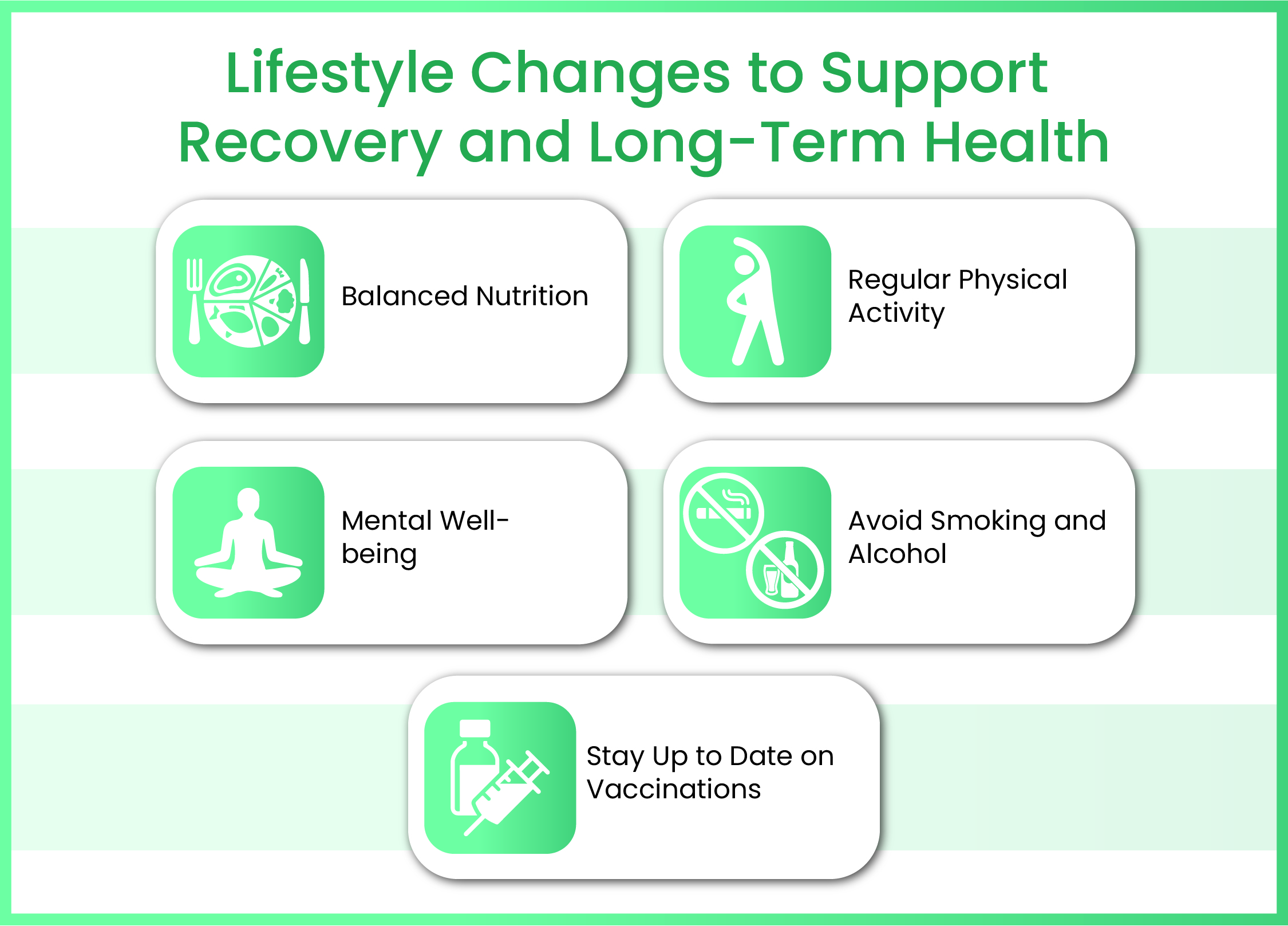
Adopting a healthy lifestyle post-transplant is vital for long-term success. These practical tips can help you rebuild your strength and maintain wellness.
Recommended Lifestyle Changes:
- Balanced Nutrition: Focus on protein, vitamins, and immune-supporting foods. Avoid processed and junk food.
- Regular Physical Activity: Light exercises like walking or yoga can help boost energy and immunity.
- Mental Well-being: Depression and anxiety are common. Talk to a counselor if needed and stay connected with loved ones.
- Avoid Smoking and Alcohol: These can interfere with healing and medications.
- Stay Up to Date on Vaccinations: Post-BMT, your vaccine history resets. Follow your doctor’s advice on re-immunization.
Dr. Reetu Jain and her team provide thorough post-transplant counseling to help you transition smoothly into your new life.
Treatment Options for Bone Marrow Transplant
Bone Marrow Transplant is not a one-size-fits-all treatment. Each patient’s condition, overall health, and specific disease determine the best approach.
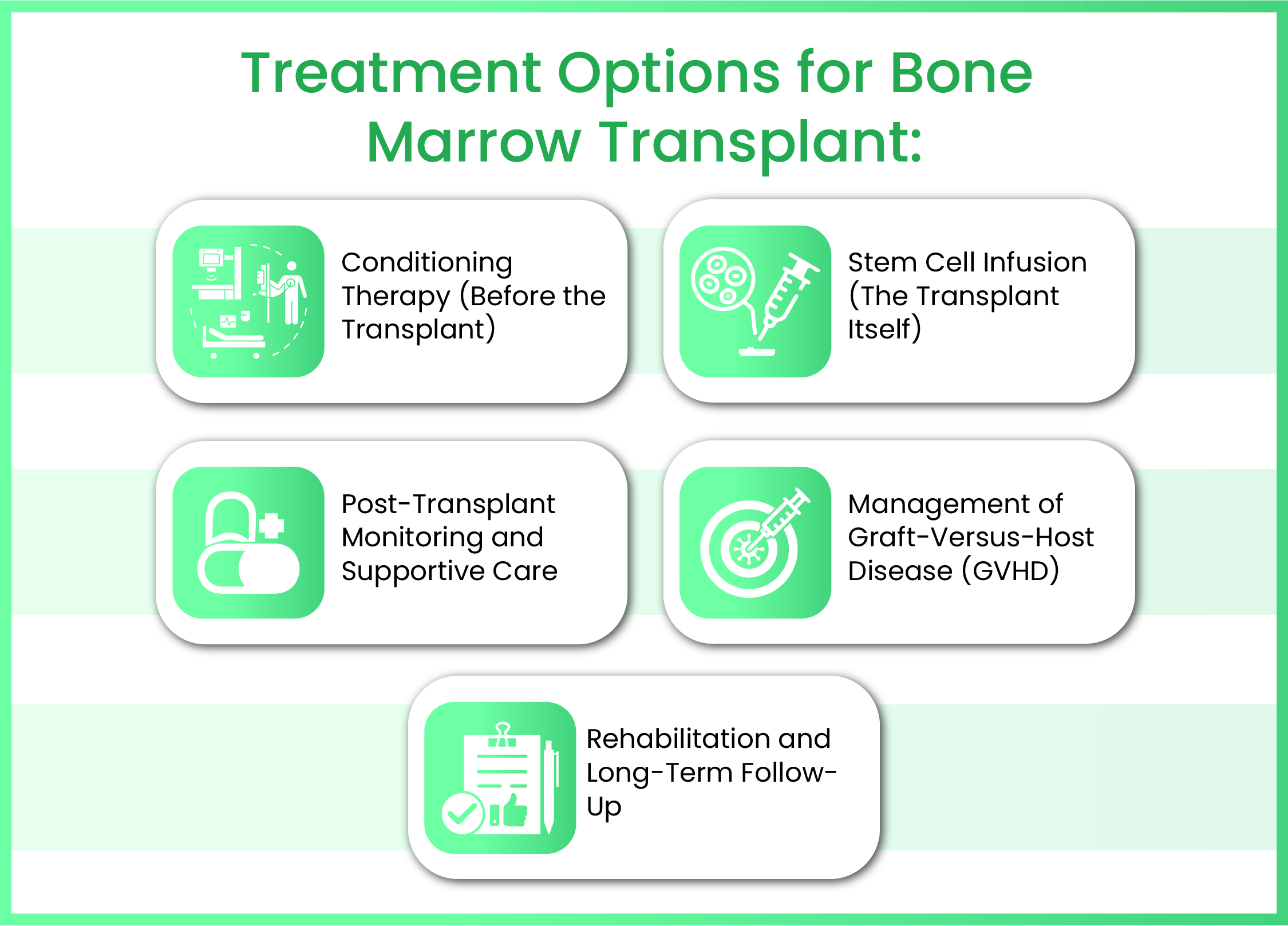
1. Conditioning Therapy (Before the Transplant)
Before a transplant can be performed, patients undergo a phase known as conditioning. This usually includes high-dose chemotherapy and sometimes radiation. The goal is to:
- Destroy any remaining cancer or diseased cells
- Suppress the immune system so it doesn’t reject the new stem cells
- Make room in the bone marrow for the new cells to grow
Conditioning therapy can be intense, and patients are closely monitored.
2. Stem Cell Infusion (The Transplant Itself)
The actual transplant process is relatively simple — the harvested stem cells (either from the patient or a donor) are infused into the bloodstream through an IV line. The procedure is painless and similar to a blood transfusion. Once inside the body, these stem cells travel to the bone marrow, where they start producing healthy blood cells.
Post-Transplant Monitoring and Supportive Care
After the transplant, patients are closely monitored for several weeks. During this critical phase, the immune system is very weak, and there is a high risk of infection. Supportive care includes:
- Antibiotic Medications: Prevent and treat infections during the vulnerable recovery phase.
- Blood Transfusion: Provided if needed to maintain healthy blood counts and support recovery.
- GVHD Prevention: Medications are used to prevent or treat graft-versus-host disease (GVHD).
- Pain & Nutrition: Pain management and proper nutrition to support healing and comfort.
Dr. Reetu Jain, known as one of the best hematologists in Mumbai, ensures every aspect of the recovery process is managed with precision and compassion.
Management of Graft-Versus-Host Disease (GVHD)
In allogeneic transplants (where stem cells come from a donor), there’s a risk of GVHD, where the donor cells attack the recipient’s body. While mild GVHD can be beneficial by fighting off cancer cells, moderate to severe GVHD requires careful treatment. This may involve:
- Immunosuppressive medications like steroids
- Targeted therapies to control the immune response
- Long-term monitoring to prevent complications
Dr. Reetu Jain brings extensive experience in managing GVHD and uses evidence-based protocols to keep it under control while supporting overall healing.
Rehabilitation and Long-Term Follow-Up
A bone marrow transplant doesn’t end at the hospital. Rehabilitation is an important part of recovery. Patients require:
- Regular check-ups to track blood counts and immune recovery
- Nutritional guidance
- Emotional and psychological support
- Vaccinations (since immunity resets after BMT)
A bone marrow transplant can be a challenging journey, but it also brings hope — the hope of a new beginning, a second chance at life. With the right guidance and support, you are never alone in this journey.
Dr. Reetu Jain is a highly respected name in the field of hematology and bone marrow transplantation, known for her clinical excellence, compassionate approach, and commitment to patient-centric care.
With years of experience in treating complex blood disorders, she has emerged as one of the best hematologists in Mumbai, offering advanced treatments for leukemia, lymphoma, multiple myeloma, and various bone marrow failures.
As a bone marrow transplant specialist at Jaslok Hospital, Dr. Jain leads a team dedicated to delivering personalized, evidence-based treatment plans that ensure both safety and success. Her expertise in managing both autologous and allogeneic transplants, as well as her proficiency in handling high-risk cases, makes her a trusted choice for patients seeking life-saving procedures.
Widely regarded as a blood cancer expert in Mumbai, Dr. Reetu Jain combines the latest medical technology with heartfelt care, guiding patients and families through every stage of diagnosis, treatment, and long-term recovery with confidence and clarity.
Frequently Asked Questions (FAQs)
The transplant itself is painless — it's similar to getting an IV drip. However, side effects from chemotherapy or the recovery process can be uncomfortable, but they are managed with medication.
It varies but generally ranges from 3 to 6 weeks. Patients are kept in special rooms to reduce the risk of infection.
Yes, BMT can be done in both adults and children, depending on their condition and overall health.
Success depends on various factors like the underlying disease, age, donor match, and timing. With timely treatment and expert care, the outcomes are very encouraging.
Yes! Many BMT survivors go back to work, travel, and live fulfilling lives. It takes time, but with proper care, recovery is achievable.


